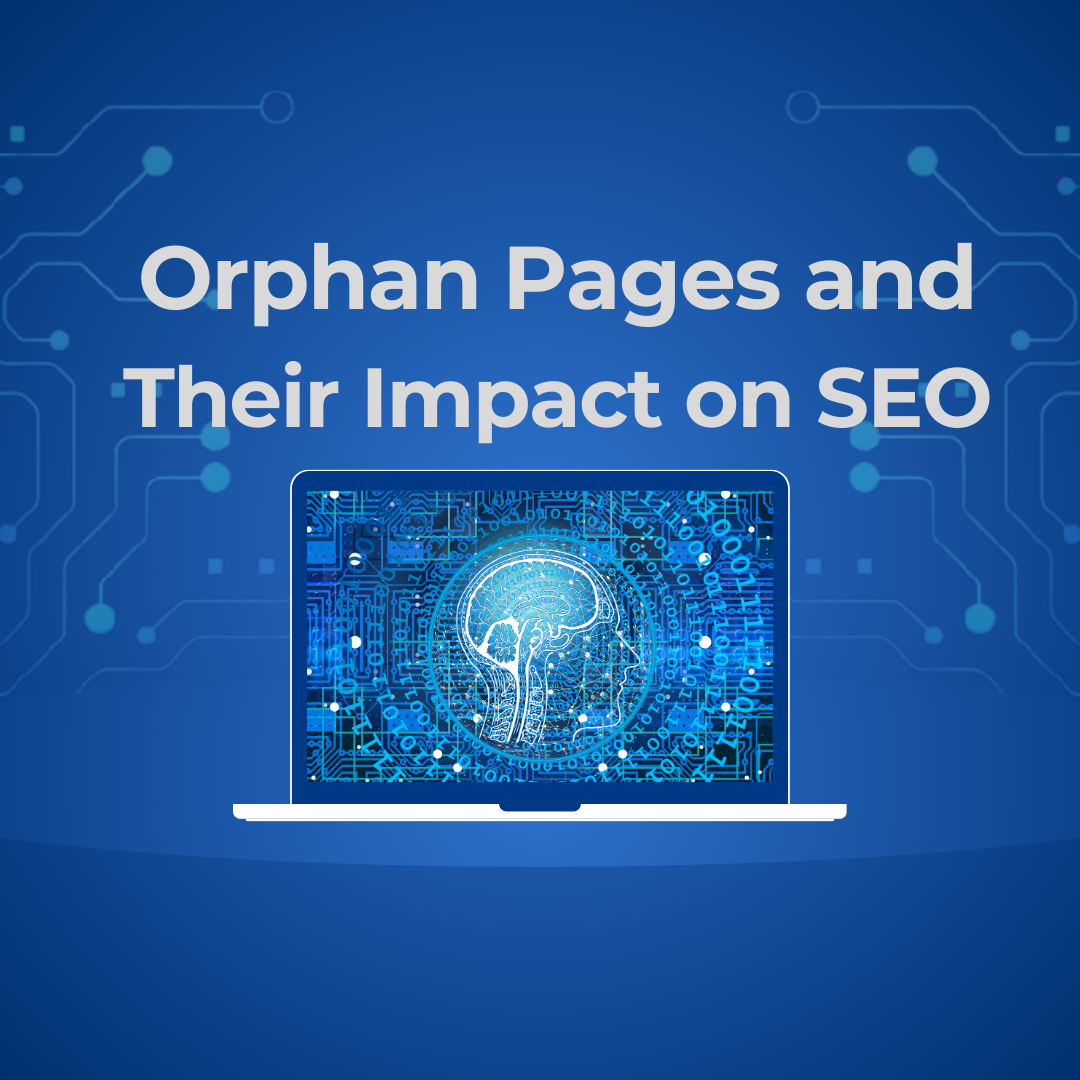Orphan Pages and Their Impact on SEO
In the complex ecosystem of search engine optimization (SEO), website structure plays a pivotal role. One of the critical yet often overlooked aspects of this structure is the presence of orphan pages. These pages exist without any internal links connecting them to the rest of the website. Understanding orphan pages and their implications for SEO is essential for optimizing your website’s performance and ensuring search engines can effectively crawl, index, and rank your content.
What Are Orphan Pages?
Orphan pages are web pages that are not linked to any other page on the same website. This lack of internal links makes these pages invisible to users navigating the site and often inaccessible to search engine crawlers unless discovered through external links or submitted directly via a sitemap.
Key characteristics of orphan pages include:
- No Internal Links: There are no hyperlinks from other pages on the website pointing to the orphan page.
- Limited Accessibility: These pages are difficult to find for both users and search engines.
- Isolation: Orphan pages exist in isolation from the site’s main navigational structure.
Common Causes of Orphan Pages
Several factors can lead to the creation of orphan pages, including:
- Site Redesigns and Restructuring: During a website redesign or restructuring, some pages may lose their internal links.
- Content Migration Errors: When migrating content from one platform or site to another, links may be overlooked or broken.
- Poor Content Management Practices: Adding new content without integrating it into the site’s existing structure can result in orphan pages.
- Discontinued Products or Services: Pages related to discontinued products or services might remain live without any links pointing to them.
- Manual Errors: Simple oversight during website updates or link creation can leave pages isolated.
The Importance of Internal Linking
Internal linking is a foundational element of SEO. It helps search engines and users navigate your website, providing structure and context. Internal links:
- Enhance Crawlability: Search engine bots rely on links to discover and index pages. Orphan pages without links may remain undiscovered.
- Distribute Link Equity: Links pass authority from one page to another, helping to improve rankings. Orphan pages miss out on this benefit.
- Improve User Experience: A well-structured site with clear navigation keeps users engaged and reduces bounce rates.
How Orphan Pages Affect SEO
Orphan pages can negatively impact your website’s SEO in several ways:
1. Reduced Crawl Efficiency
Search engine crawlers use links to navigate websites. Orphan pages, being disconnected from the rest of the site, are harder for crawlers to find. While these pages can still be indexed if they’re included in a sitemap or linked to externally, the lack of internal links significantly reduces their visibility. This inefficiency can waste crawl budget—the finite number of pages a crawler visits on your site—on redundant or irrelevant pages.
2. Missed Ranking Opportunities
Orphan pages often fail to rank well in search engine results because they lack internal links, which are a vital signal for search engine algorithms. Links provide context, relevance, and authority to pages, helping search engines understand their importance and how they fit within the overall site hierarchy.
3. Poor User Experience
For users, orphan pages are practically invisible unless accessed through external links, search results, or direct URLs. This isolation can lead to a fragmented user experience, with valuable content being overlooked.
4. Diluted Authority
Orphan pages cannot benefit from the authority passed through internal links. This lack of link equity distribution can lead to suboptimal performance for these pages in search results.
5. Inconsistent Content Strategy
The presence of orphan pages often reflects a lack of coherence in the content strategy. Such inconsistencies can confuse users and dilute the overall message of the site, harming both SEO and brand reputation.
6. Increased Risk of Duplicate Content
Orphan pages may contain duplicate or outdated content. Without proper linking, it’s harder to maintain and monitor these pages, increasing the risk of duplicate content penalties from search engines.
Identifying Orphan Pages
Identifying orphan pages is a crucial step in mitigating their negative impact. Several methods can help uncover these hidden pages:
- Crawl Your Website Tools like Screaming Frog, Sitebulb, and DeepCrawl can perform comprehensive crawls of your website to identify pages without internal links.
- Analyze Analytics Data Review your website’s analytics for pages with minimal or no traffic. These could be potential orphan pages.
- Check Server Logs Analyze server logs to find pages accessed by crawlers but not linked internally.
- Compare Sitemaps and Crawls Cross-reference your XML sitemap with a crawl report to identify pages in the sitemap that do not appear in the crawl.
- Audit Backlinks Use tools like Ahrefs or SEMrush to check for external backlinks pointing to pages not linked internally.
Fixing Orphan Pages
Once you’ve identified orphan pages, addressing them is essential to improve your website’s SEO performance. Here’s how:
- Integrate Orphan Pages into the Site Structure
- Add internal links to orphan pages from relevant pages within your site.
- Ensure these links are placed in logical contexts, such as navigation menus, related content sections, or inline text.
- Evaluate Content Value
- Assess whether the content on orphan pages is valuable and aligns with your site’s objectives.
- If not, consider consolidating, updating, or deleting the pages.
- Update Your Sitemap
- Include orphan pages in your XML sitemap to ensure search engines can index them.
- Leverage Redirects
- If an orphan page is no longer relevant, redirect it to a related or higher-level page to preserve link equity and avoid broken links.
- Implement Regular Audits
- Schedule regular website audits to catch and address orphan pages proactively.
Preventing Orphan Pages
Preventing orphan pages requires ongoing attention to website structure and content management. Best practices include:
- Establish Clear Content Workflows
- Integrate new content into your site’s hierarchy with appropriate links as part of the publishing process.
- Maintain a Robust Internal Linking Strategy
- Use tools or plugins to suggest internal links automatically for new and existing content.
- Regularly Update and Monitor Your Sitemap
- Keep your XML sitemap current to reflect all live pages on your site.
- Conduct Routine SEO Audits
- Periodic audits can identify structural issues, including orphan pages, ensuring your site remains optimized.
- Educate Your Team
- Train content creators and developers about the importance of internal linking and site structure.
Tools to Manage Orphan Pages
Several tools can help you identify and address orphan pages effectively:
- Screaming Frog SEO Spider
- A robust tool for crawling websites, identifying orphan pages, and analyzing site structure.
- Google Analytics
- Use behavior and traffic reports to identify low-traffic pages that might be orphaned.
- Ahrefs
- Analyze backlinks and internal linking to spot gaps in your site’s structure.
- SEMrush
- Perform site audits to uncover orphan pages and other SEO issues.
- DeepCrawl
- Offers advanced features for detecting orphan pages and monitoring site health.
Conclusion
Orphan pages are a significant yet often neglected aspect of website management and SEO. Their isolation can hinder search engine crawlers, dilute link equity, and create a disjointed user experience. By identifying, addressing, and preventing orphan pages, you can enhance your site’s crawlability, user engagement, and overall SEO performance. Regular audits, a robust internal linking strategy, and attention to detail in content management are essential to ensuring a cohesive and efficient website structure. Investing time and resources into managing orphan pages can yield long-term benefits, solidifying your site’s visibility and authority in search engine rankings.



